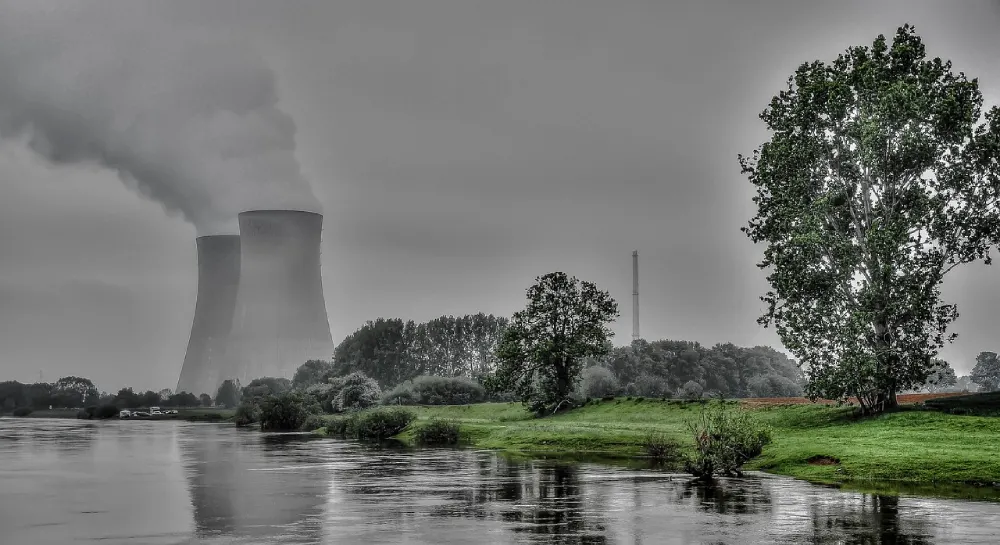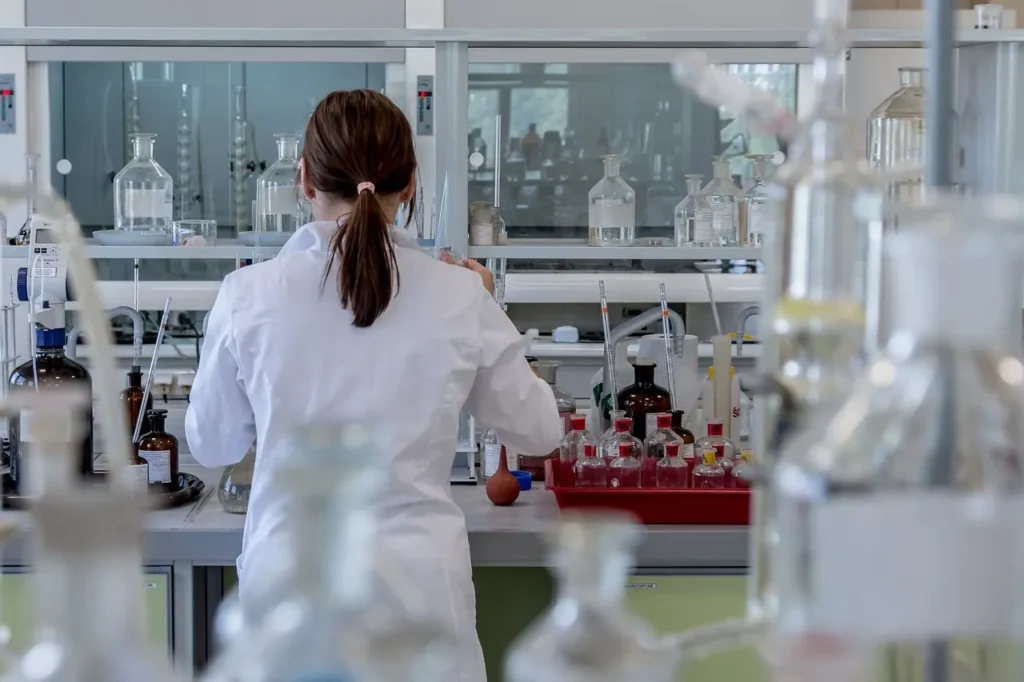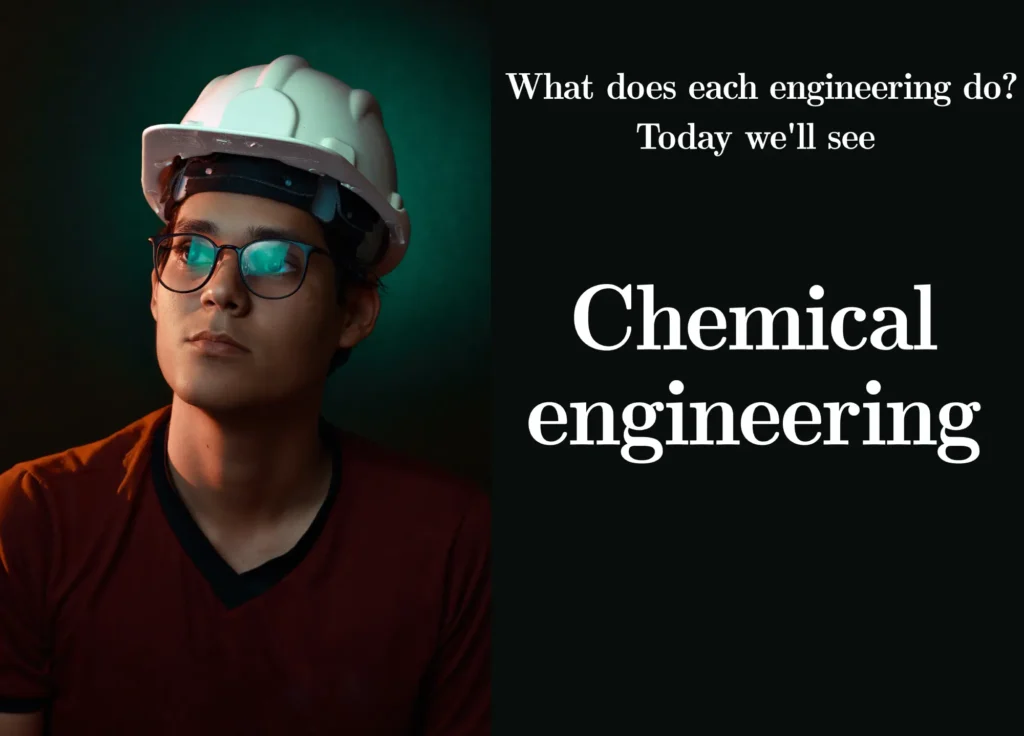What is Chemical Engineering?
Chemical Engineering is a fascinating discipline situated at the intersection of chemistry, physics, and engineering. A Chemical Engineer focuses on the design, production, and optimization of processes involving the transformation of materials and chemicals to create valuable products. In other words, chemical engineers are the masters behind the magic that turns raw materials into essential products for our daily lives, from pharmaceuticals and food to energy and advanced materials.
What is the Foundation of Chemical Engineering?
To fully understand what Chemical Engineering is, it is essential to explore its foundations. This discipline is based on scientific principles such as thermodynamics, chemical kinetics, and mass and energy transfer. Chemical engineers use these principles to design and control processes in which chemicals are transformed into useful products.
A key component of Chemical Engineering is the concept of a chemical reactor. These devices are crucial for carrying out controlled chemical reactions, where chemical engineers must consider factors such as temperature, pressure, concentration, and catalysts to achieve the desired result. The efficient design and operation of these reactors are crucial in numerous industries, from plastics production to the manufacturing of pharmaceutical chemicals.

What Specializations does Chemical Engineering have?
Chemical Engineering is such a broad and versatile field that it offers various specializations for those looking to focus on specific areas of interest. Here are some of the prominent specializations:
Process Engineering: This specialization focuses on optimizing industrial processes to improve efficiency and safety. Process engineers work in industries such as petrochemicals, food, and pharmaceuticals to ensure that production processes are optimal and sustainable.
Materials Engineering: Chemical engineers specializing in materials focus on developing new materials with specific properties. This ranges from advanced polymers for plastic products to composite materials for the aerospace industry.
Environmental Engineering: With a focus on sustainability, environmental chemical engineers work on reducing pollution and managing natural resources. They contribute significantly to environmental protection and the creation of cleaner industrial processes.
Biochemical Engineering: This specialization merges biology and chemistry to develop processes involving living organisms, such as the production of bioenergy, pharmaceuticals, and food.
Energy and Fuels Engineering: Chemical engineers in this area are dedicated to the design and optimization of energy systems, such as fuel production, solar energy, and waste management.
Nanotechnology: Nanotechnology involves working with materials on a nanoscale. Chemical engineers in this specialization develop products and processes that harness the unique properties of materials at the nanoscale.

What Subjects are Covered in Chemical Engineering?
If you are considering becoming a Chemical Engineer or studying Industrial Chemistry, it is crucial to understand the subjects that await you in your academic journey. These subjects are fundamental to building a strong foundation in this highly specialized discipline. Here are three subjects that an undergraduate Chemical Engineering student might encounter in their academic program:
Advanced Thermodynamics and Chemical Kinetics: This subject is essential for understanding how chemical reactions work in complex systems. Students explore the laws of thermodynamics, governing energy and heat in chemical processes, as well as chemical kinetics, analyzing the speed of reactions. Through this subject, future chemical engineers acquire the necessary tools to design and optimize chemical processes, from chemical production to energy generation.
Reactor and Chemical Process Design: This subject is the heart of Chemical Engineering. Here, students learn to design and operate chemical reactors efficiently and safely. They delve into the selection of catalysts, management of heat and mass transfer, and solving complex problems related to process engineering. The knowledge gained in this subject is fundamental to becoming a competent chemical engineer capable of undertaking large-scale industrial projects.
Process Control and Automation: This subject focuses on the automation of industrial processes and the management of control systems to ensure that chemical processes run optimally and safely. Students learn to design control systems, use advanced technology such as PLCs (Programmable Logic Controllers), and solve real-time control problems. This skill is essential in industries such as petrochemicals and pharmaceuticals, where accuracy and safety are priorities.
Professional Profile and Skills of a Chemical Engineer
A Chemical Engineering student develops a solid professional profile and acquires a series of key skills that prepare them for a successful career in various industries. Here is a description of some of the skills and the typical professional profile of a chemical engineer:
What Skills does a Chemical Engineer Acquire?
– Design and Optimization of Processes: Chemical engineers are experts in designing and improving chemical processes and production systems to maximize efficiency and minimize costs.
– Problem Solving: They have the ability to address complex challenges related to chemistry and engineering, using analytical thinking and creativity.
– Environmental and Safety Management: Chemical engineers care about the environment and workplace safety and are trained to develop processes and products that are environmentally friendly and safe for workers and the community.
– Communication Skills: They can effectively communicate technical ideas with both colleagues and non-technical individuals, crucial for interdisciplinary collaboration and project management.

What is the Professional Profile of a Chemical Engineer?
The chemical engineer is a highly sought-after professional in various industries, including petrochemicals, pharmaceuticals, food, energy, and manufacturing. Their ability to design processes, solve problems, and ensure safety and sustainability in production makes them a valuable asset. Additionally, many chemical engineers advance in their careers and take on leadership roles in project management and technical teams.
What does a Chemical Engineer do?
The field of Chemical Engineering is broad and diverse, offering a wide range of career opportunities for those looking to enter this field. But perhaps you’re wondering, what job prospects does chemical engineering have?

What Positions can a Chemical Engineer Hold?
Process Engineer: This is one of the most common roles for chemical engineers. Process engineers design, implement, and optimize industrial processes for the efficient production of chemicals, food, pharmaceuticals, energy, and more. Their focus is to ensure that processes run safely and economically.
Process Control Engineer: These professionals specialize in automating production systems and controlling chemical processes. Their job is to ensure that processes run precisely and efficiently, using advanced technologies such as SCADA and PLC systems.
Research and Development Engineer: Chemical engineers dedicated to research and development work in laboratories and research centers to create new products, improve existing ones, and develop innovative technologies. This is crucial in the pharmaceutical, food, and materials industries.
Plant Design Engineer: These engineers focus on the planning and design of production facilities. From equipment layout to resource management, their work ensures the efficiency and safety of industrial plants.
Safety and Environmental Engineer: This role focuses on ensuring that industrial operations comply with environmental and safety regulations. Engineers in this field work to minimize risks and reduce the environmental impact of industrial operations.
In which Industries does a Chemical Engineer Work?
Chemical engineers can find employment in a variety of industries, some of which include:
Petrochemical Industry: They participate in crude oil refining, plastics production, and energy generation from fossil fuels.
Pharmaceutical and Biotechnology: They contribute to the design and production of medicines and biotechnological products.
Food Industry: They participate in the production and improvement of food, ensuring its safety and quality.
Energy and Environment: They work on sustainable energy production, waste management, and environmental protection.
Chemical and Materials: They contribute to the creation of new materials and chemicals.
They design and improve production processes in various industries.
How much does a Chemical Engineer Earn?

Chemical engineers have a crucial role in the job market since much of their work generates products for the private sector, products for sale. This engineering field has great potential for generating patents for products in virtually any industry, including cleaning products, medical products, optimization methods, chemicals in general, beauty and personal care products, among others. In short, it is an engineering discipline that allows its professionals to work independently, achieving substantial income. While it is challenging to establish a base salary, as it varies significantly for each country and even for each company, let me tell you that in all modern industries, chemical engineers are in demand, and job opportunities will not be lacking.
Is Chemical Engineering Worth It?
If you are considering Chemical Engineering as your future career, you should know that you are entering an exciting and challenging field. On this journey, you will face complex problems and contribute significantly to the advancement of technology and the improvement of people’s quality of life.
Remember that, as a chemical engineer, you will be a change agent. Your ability to design more efficient processes and innovative products will have a direct impact on society and the world around you. This is a field that values creativity, problem-solving, and critical thinking. Every challenge you encounter will be an opportunity to learn and grow.
So, if you have a passion for chemistry and engineering, go ahead! Studying Chemical Engineering will open doors to a future full of opportunities and meaningful contributions. Always remember that, with dedication and perseverance, you can achieve your goals and become a successful chemical engineer who makes a difference in the world. Don’t hesitate to embark on this exciting journey into the world of chemistry and engineering!
About The Author
Samuel Parariá
Estudio: University of Francisco de Paula Santander.
Major: Civil Engineering.
Favorite Areas: Structures, Traffic Engineering, and Road Design.
Location: Cúcuta, Norte de Santander, Colombia.







Related
Do you want to study Aerospace Engineering? – Discover what it is.
What is Industrial Engineering?
Mechatronics Engineering: The Technological Symbiosis.